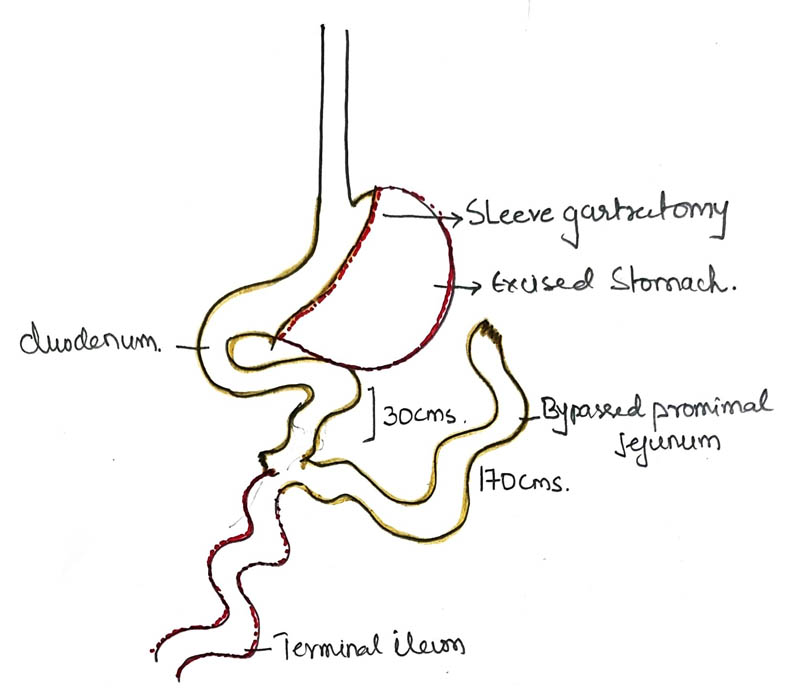SG-PJB is a surgical procedure that alters the digestive tract to aid in weight loss and improve metabolic health. This surgery is increasingly being used to treat obesity and related metabolic disorders such as type 2 diabetes. By bypassing a portion of the small intestine, specifically the proximal jejunum, this procedure affects how food and digestive juices interact, leading to significant metabolic changes.

The proximal jejunum is the upper segment of the small intestine, immediately following the duodenum. During proximal jejunum bypass surgery, the surgeon creates a connection between the duodenum and a more distal part of the small intestine, effectively bypassing the initial segment of the jejunum. This alteration changes the way nutrients are absorbed and how food interacts with digestive enzymes. The surgery is done under general anesthesia and is usually performed robotically or laparoscopically, involving small incisions and the use of a camera to guide the surgeon.
The surgery helps patients achieve resolution or remission of diabetes by reducing calorie absorption and altering gut hormones that regulate hunger, satiety, insulin sensitivity and glucose metabolism. SG-PJB also helps in improving blood cholesterol levels, blood pressure, and other markers of metabolic health. The added advantage of this procedure is that the duodenum and the biliary tree is accessible through endoscope for any intervention.
SG-PJB surgery is typically recommended for individuals with a body mass index (BMI) over 30 Kg/m2 with uncontrolled/poorly controlled type 2 diabetes, despite taking medical treatment under supervision.
Like any surgical procedure, SG-PJB surgery carries potential surgical risks such as anastomosis leak, bleeding and infection, however the chances are less than 2%. Post-surgery the smaller stomach size and the bypassed portion of the intestines leads to reduced food intake and mal-absorption of nutrients, which may cause nutritional deficiencies requiring timely supplementation.
Successful outcomes of SG-PJB depend heavily on adherence to postoperative care and lifestyle modifications. Patients need to follow the post-operative dietary advice, starting with liquids, then soft foods and gradually progressing to normal diet in a month’s time. Long-term dietary changes involve eating smaller, protein based, nutrient-dense meals and avoiding high-sugar and high-fat foods. Regular follow-up is extremely important for sustainable monitoring, guidance and longevity of surgical outcomes. Patients are also advised to take protein, vitamin and mineral supplements to treat and prevent nutritional deficiencies. Also, incorporating regular exercise helps maintain blood sugar, body weight and improves overall health.
SG-PJB surgery offers a powerful tool for individuals struggling with uncontrolled/poorly controlled diabetes and other metabolic problems. By altering the digestive tract, this procedure can lead to resolution or remission of diabetes and enhances quality of life. However, it is essential for the candidate to fully understand the necessary lifestyle changes associated with the surgery for better outcomes.
For those considering this surgery it is crucial to consult with a qualified bariatric surgeon to discuss individual health needs, potential benefits, and the risks involved. With proper medical guidance and commitment to lifestyle modifications, this surgery can be a transformative step towards achieving long-term health and well-being.